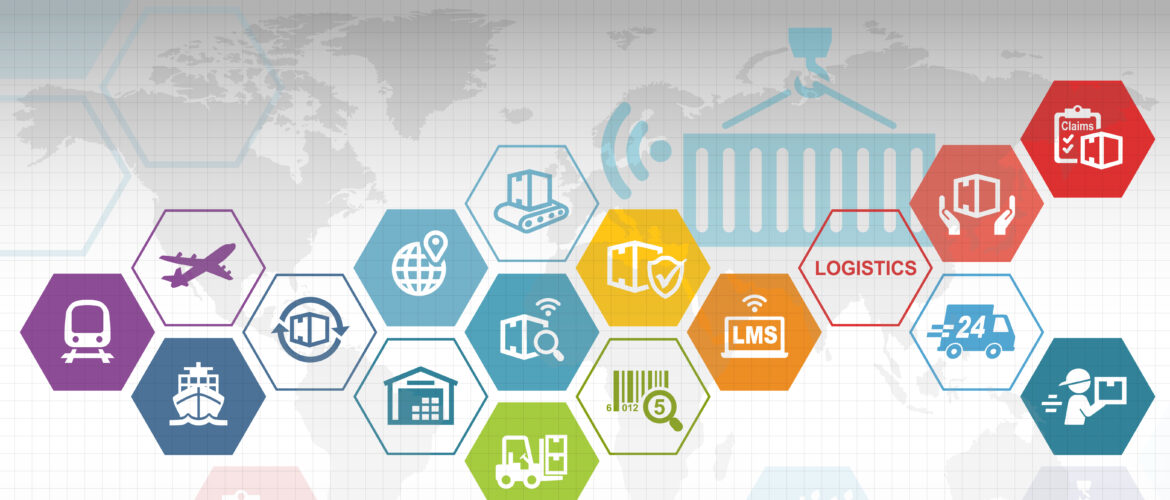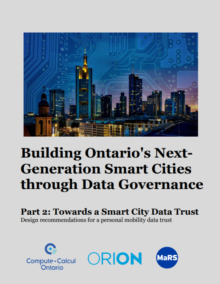Part 2: Towards a Smart City Data Trust
Design recommendations for a personal mobility data trust.
Cities across Ontario are introducing digital technologies to improve their citizens’ quality of life and unlock the potential of the digital economy. These technologies are rapidly increasing the amount of data collected and shared among private and public organizations. To maintain the privacy and security of this data, we need new data governance mechanisms that balance the interests of citizens while enabling new opportunities for economic development. ORION and Compute Ontario produced a series of reports titled “Building Ontario’s Next-Generation Smart Cities through Data Governance” to explore these mechanisms.
We continue the series with a report from MaRS examining the data trust as a governance model for Ontario’s mobility sector.
How do we build smart cities that feature citizen-centred design as it relates to their mobility data?
Smart cities need to protect the interests of citizens living in the digital age. MaRS argues that a data trust is the right governance model for smart cities. A data trust steward maintains and manages how data should be used and shared. Most importantly, a data trust determines who can access information, and under what terms.
MaRS selected personal mobility as a high-value use case for exploring a data trust. Personal mobility has significant public benefits, high regional need, strong market interest, unresolved privacy concerns, and a current lack of systems-level data governance practices for the responsible use of commercially and personally sensitive information required. Governments and public-minded corporate sponsors need to invest in prototyping and testing data governance concepts. This will enable Ontario to benefit from digital economy opportunities while increasing citizen engagement and inclusivity in the design of its smart cities.
Findings
In exploring a personal mobility data trust for smart cities, the report recommends:
- A not-for-profit corporation should govern the data trust
- Civic participation ensures that data governance is citizen-centric
- The data trust needs to securely manage the technical architecture, while providing authorization and access
- The rapidly changing nature of the environment means that the data trust must be flexible
Mobility networks require the use of commercially and personally sensitive information. This could include the location of users and employees, commercial load information, vehicle information, and financial information. Governments and public-minded corporate sponsors need to invest in prototyping and testing data governance concepts. This will enable Ontario to benefit from digital economy opportunities while protecting and advancing the rights and freedoms of our citizens.
To learn more, read Part 2 of our series: Towards a Smart City Data Trust.


